Countless lives changed on October 7, 2023, and Yusef Mahmoud's was no different. Even before the war, the Palestinian taxi driver could not bear to be a passive observer of unemployment and hunger, two phenomena prevalent in daily life in Gaza. In 2022 and early 2023, more than two million Gazans lacked access to clean water and an adequate sewage system, while two-thirds of the population lived in poverty.
In this context, Yusef sought help online. It was Ramadan 2023 and he was wondering if other Muslims around the world would contribute bitcoin, the first decentralized cryptocurrency, which he could use to purchase and distribute food for the needy and toys for the children of Gaza. UK-based Bitcoiner Fumble was among those who responded to his call.
“I quickly saw that Yusef was really transferring the support he received to the people on the ground,” Fumble recalls. “When bitcoiners sent satoshis (the smallest monetary units of bitcoin) to Yusef, he returned photographs of the impact of the donations on the elderly and orphans around him. The more evidence I saw of his work, the more he wanted to help, and that's when I suggested Geyser as a means for Yusef to organize his initiative and expand the project.”
In April 2023, Yusef launched a geyser projecta global Bitcoin crowdfunding platform, to raise more funds and provide food and clean water to Palestinian civilians in need.
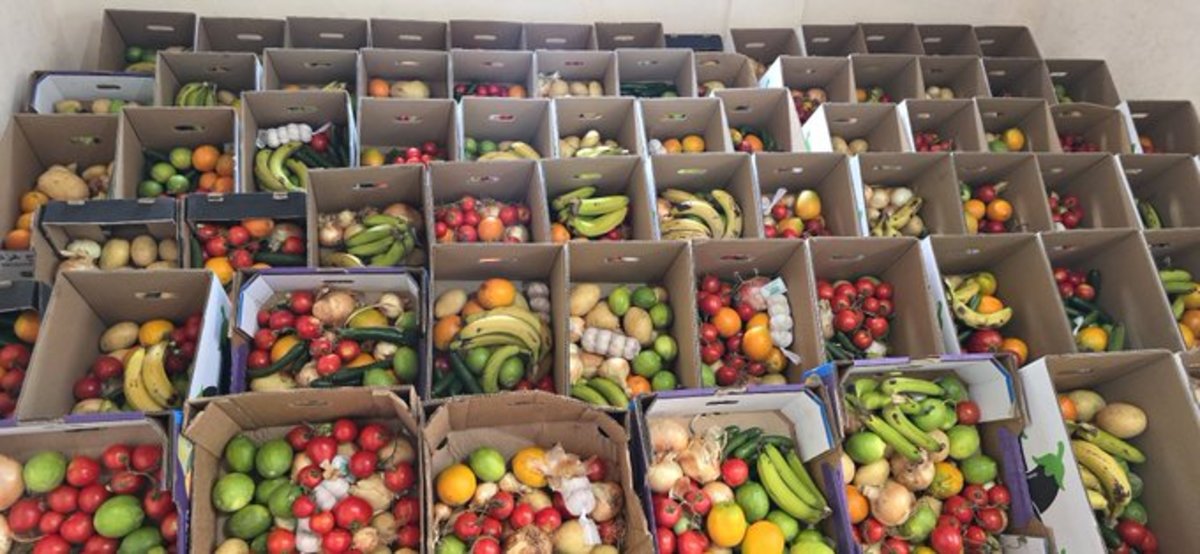
When things got tough, support came
In the following months, Yusef's project took on new dimensions. The situation in Gaza was aggravated by the military occupation, which displaced 85% of the population of Gaza and paralyzed economic activities, further worsening poverty and unemployment. Demand for food and water increased and Yusef shifted from supporting families during Ramadan to providing essential items for civilians in need.
Between April 2023 and May 2024, more than 1,500 people had donated to the cause. This has allowed Yusef to repeatedly purchase food and drinking water for 20,000 families in Gaza, each averaging five to seven members. About 500 of the people he helps are orphans.
Fumble explains that having a Geyser project made it easier for people to support Yusef's efforts. Today, Yusef relies on these donations to continually provide canned food, baby supplies, drinking water, bags of flour, clothing, and access to medicine for civilians. The donations have also ensured that Yusef has enough credit on his e-SIM card to stay connected and up to date on what the community needs, and to be able to access donations received through the project.
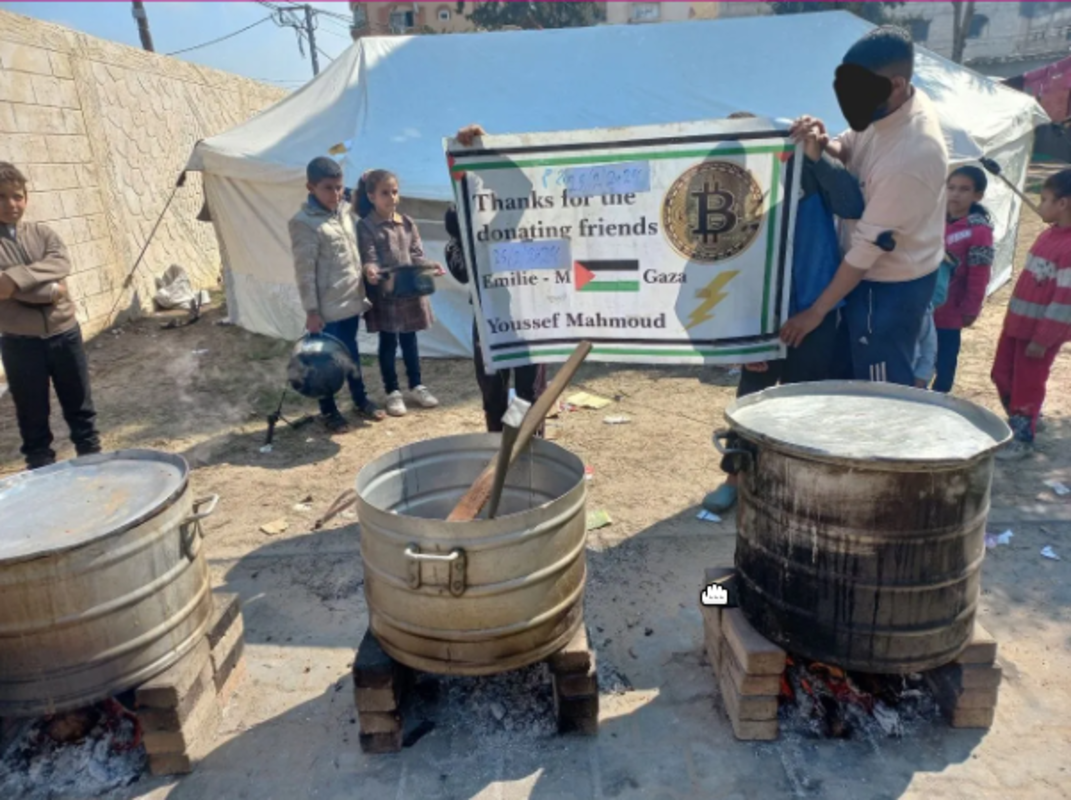
“There are more people here using Bitcoin now, there is no other way.”
Within two months of the war, unemployment in Gaza had risen to 79.3%Local residents lack sources of income and access to water, sanitation, healthcare and education. Half of the local population are children. Meanwhile, even those who had savings in the bank were unable to carry out transactions.
“During wars, you're only left with the change you had in your wallet,” Yusef explains in a glitchy call, where Fumble is also present to help bridge our language gap. “The banking apps on our phones don't work and banks are freezing accounts in Gaza. We only have cash or Bitcoin.”
Fumble explains that the Palestinian economy runs on the Israeli shekel and that Gaza's financial system is almost entirely dependent on Israel, which must approve the movement of cash in the area. “The occupation is why payment processors don't facilitate it, and it's why Israel has control over the transactions that come into its banks,” Fumble says.
Because of this, many Palestinians relied on contacts abroad to manage or access their funds, but stories abound of people who trusted someone with their money only to discover that person would not pass it on to its rightful owner. Those who transfer the money often charge a high fee, over 30%.
For people like Yusef, Bitcoin emerged stronger than ever as an alternative. Its peer-to-peer and permissionless nature allows you to overcome financial and platform barriers to get help from outside and help people on the ground. Additionally, fees to exchange bitcoins for fiat money are around 5%, making it cheaper and faster than the alternative. “You can see why more people here are using Bitcoin; There is no other way,” shares Yusef.
Additionally, other crowdfunding platforms do not operate in Gaza or have blacklisted it, so you cannot use them to send or receive funds if you are registered in Palestine. Geyser continues to allow people here to raise funds using bitcoin, with additional precautions such as requiring users to identify themselves to ensure funds are not used to support sanctioned individuals.
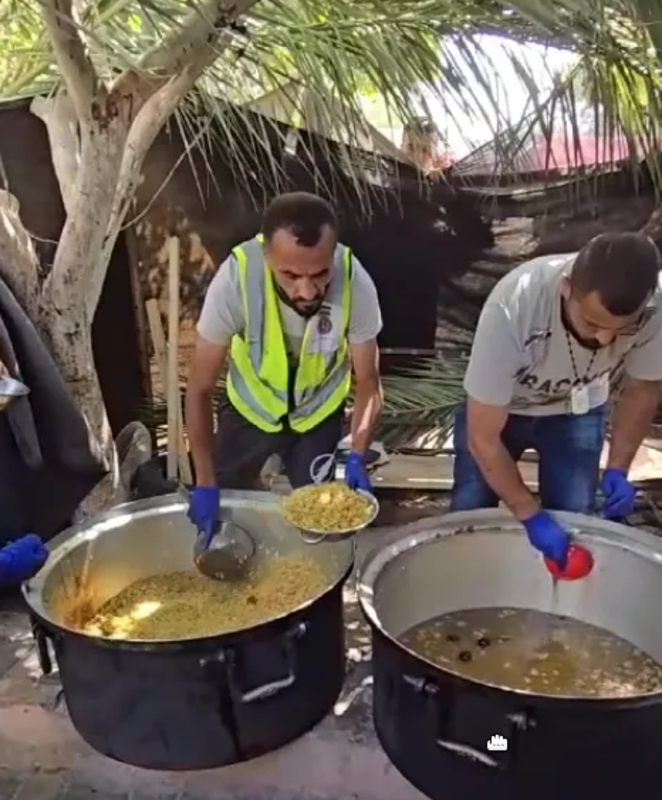
“The citizens are not to blame in this war, that is why I help them.”
To further complicate the economic situation in Gaza, many families are separated by forced displacement, as are Palestinian men. arrested Meanwhile, their families are told to flee. “Parents were the main breadwinners in Gaza, and many families are now forced to fend for themselves. These are the people who most often come to my door for help,” says Yusef.
To help them, Yusef periodically travels to Rafah in search of supplies. The journey is not easy. The dislocation in Gaza makes Yusef more vulnerable to attack, while extensive inspections by the military forces restrict goods arriving in Rafah from Egypt. “Supply is being deliberately restricted,” explains Fumble. “There is no anesthesia, there is no insulin, medical respirators are perforated… Even medical scissors can be considered a weapon and used as an excuse to reject a batch of supplies. Not to mention that the trucks are deliberately delayed so that the food spoils.” When asked what motivates him to continue, Yusef responds simply: “The citizens are not to blame in this war, that's why I help them.”
But there are also good days. In March 2024, Yusef managed to buy 2,700 chickens from Egypt to feed his community. The order qualified as “commercial capacity,” which simplified bureaucracy across borders. These large-scale transactions are a source of hope for Yusef, but they are only possible when substantial donations arrive.
In April 2024, Yusef’s project received $48,000 in bitcoin. I ask Yusef if he is proud or surprised by this achievement, to which he replies: “My greatest achievement has been to provide people, especially children, with the help they need.” More recently, he built nearly 100 tents to house displaced families.
Although his project is consistently among Geyser's most funded, he sometimes struggles to keep up with the incessant needs and expenses that Yusef has been trying to cover. For example, not only is it difficult to get food but it also comes at a huge price inflation When available. The week of our call, shortly after Yusef raised $48,000 in Geyser, donations began to dry up and he was about to sell his car to have money to help people who desperately need medical assistance. “To help more people, we need the money to access large-scale supplies and rent cars or trucks to transport those goods to displaced communities,” he explains.
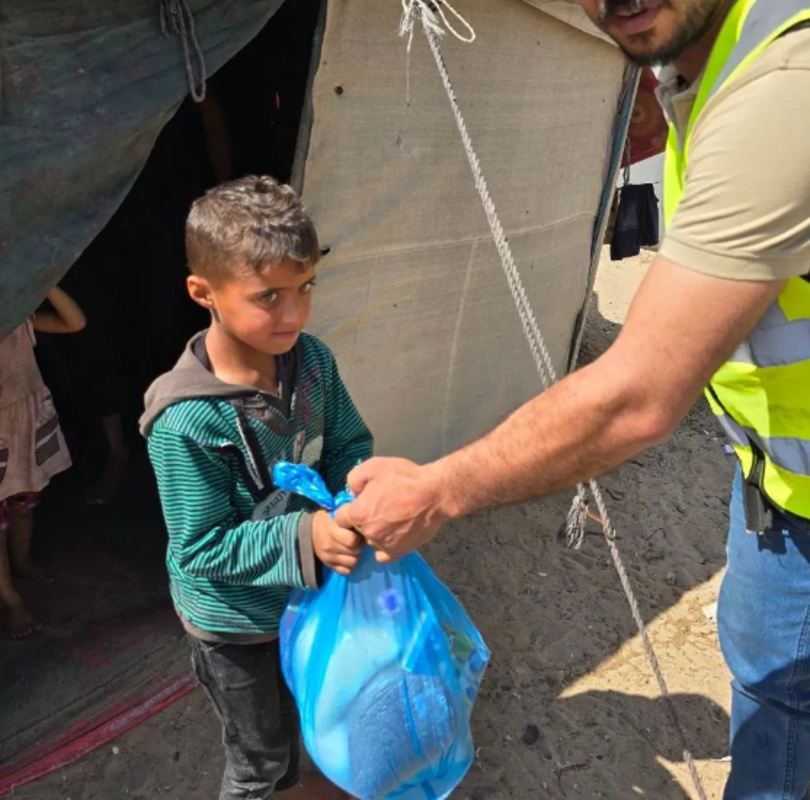
Using bitcoin to meet people's immediate needs, one day at a time
Online, work is done in xwhere Fumble helps Yusef spread the word about the project so that the trickle of donations doesn’t dry up. “Yusef sends me videos of the work being done on the ground, which helps prove that the project is credible and genuine. The consistency with which he shares these videos helps demonstrate transparency about his intentions. The challenge is to share as much information as possible without compromising people’s safety,” explains Fumble.
“You have to be very careful,” says Fumble. “We want to show as much as possible what is happening and Yusef's first-hand content is valuable in that sense. The more transparency, the more likely people will donate. But at the same time, we need to protect the innocent civilians in Gaza, many of whom feel quite abandoned by the world.”
Adding to that sentiment, Palestinians adhere to the long-held mantra of “steadfast.” When asked if he is hopeful that life will return to normal, Yusef doesn't hesitate: “Yes, of course.”
Until then, Fumble is thinking of other ways to help civilians in Gaza. On the cards is the possibility of manufacturing and supplying 3D printed prosthetics for children who have lost limbs during this conflict. “When I share these ideas with Yusef, he just says 'God willing,'” says Fumble, “because he doesn't take anything for granted; he is working hard to meet people's immediate needs. “Bitcoin donations have become that lifeline that people cling to to get them through just one more day.”
Donate to Yusef's Save Gaza project here.
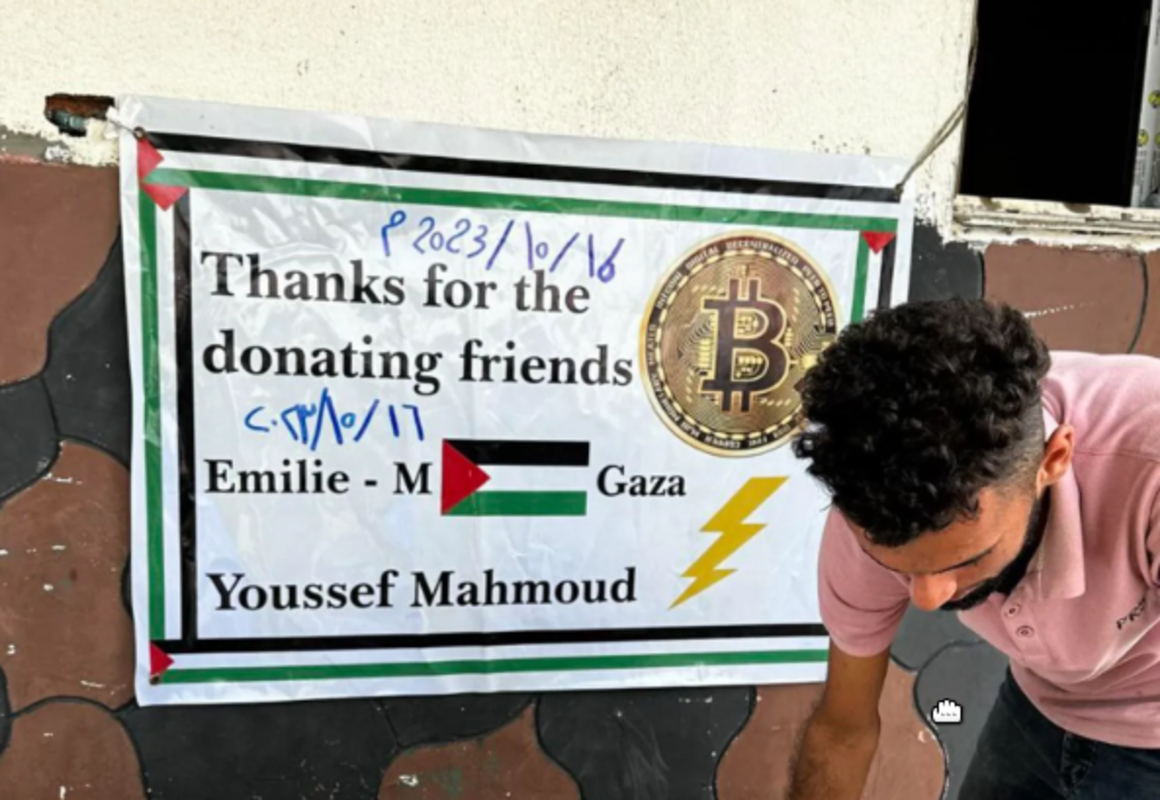
This is a guest post by Michele Morucci. The views expressed are entirely his own and do not necessarily reflect those of BTC Inc or Bitcoin Magazine.






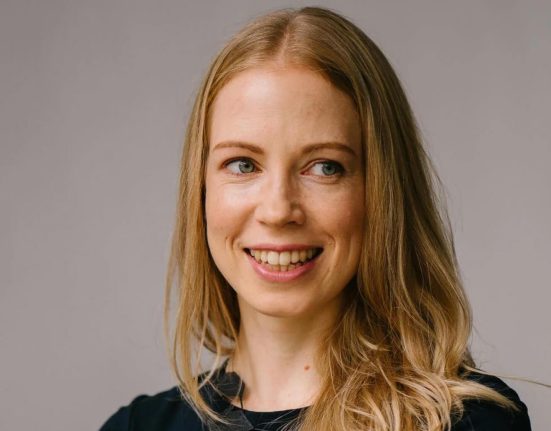
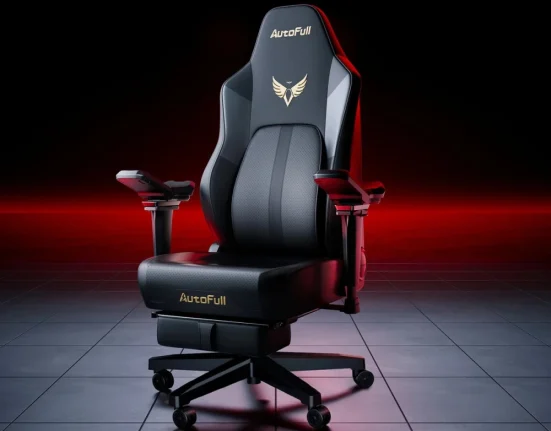

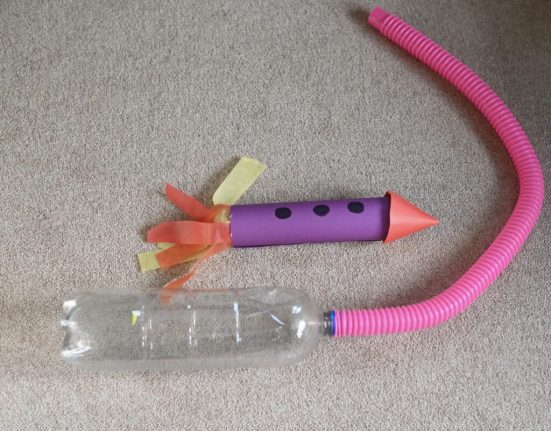

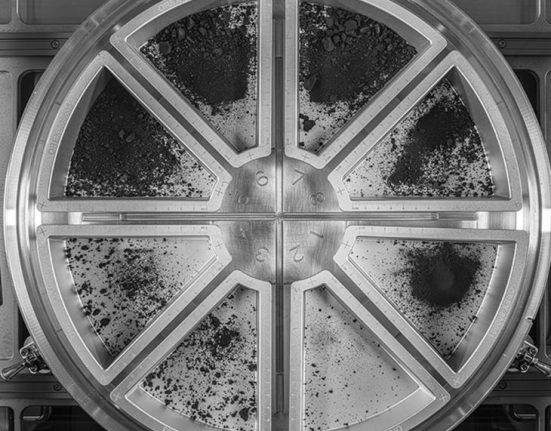
Leave feedback about this